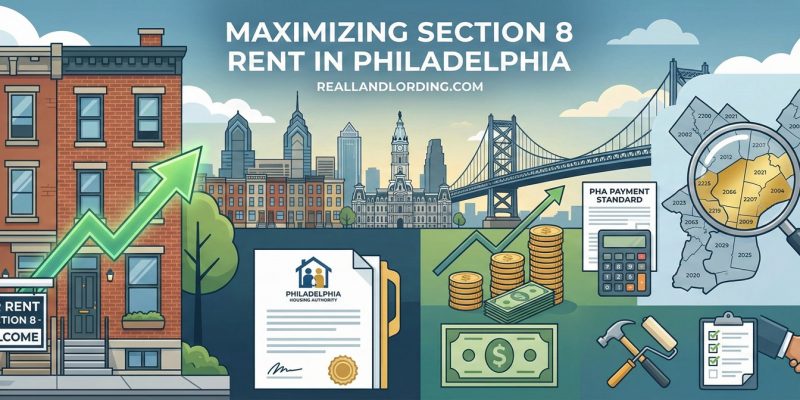The Professional Landlord's Guide to Philadelphia
Mastering the Market: A Visual Toolkit for Compliance, Maintenance, Tenant Relations, and Profitability.
The Foundation: Legal Compliance
Navigating Philadelphia's specific regulations is non-negotiable. Proper legal compliance protects your investment, your tenants, and your peace of mind. It's the bedrock of a professional and sustainable rental business.
Rental License & Certification Lifecycle
Follow this process for every new tenancy to ensure you're legally ready to rent in Philadelphia.
Obtain a Rental License
Apply through the eCLIPSE portal. This is required for all rental properties.
Lead-Safe Certification
For properties built before 1978, get certified by a licensed inspector.
Provide Tenant Documents
Give tenants the 'Partners for Good Housing' handbook and lead disclosures.
Renew Annually
Don't let your license or certifications lapse. Set calendar reminders.
Top Compliance Pitfalls to Avoid
These common mistakes can lead to significant fines and legal trouble. Understanding the distribution of these issues helps prioritize your compliance efforts.
The Asset: Proactive Property Maintenance
Think of maintenance not as an expense, but as an investment. A well-maintained property attracts better tenants, commands higher rent, and preserves its long-term value.
Average Annual Maintenance Spending Per Unit
Budgeting is key. This chart shows a typical breakdown of maintenance costs for a single rental unit in a year, helping you allocate funds effectively.
Seasonal Maintenance Checklist
Stay ahead of repairs by following a seasonal schedule. Proactive checks prevent small issues from becoming costly emergencies.
🌱 Spring
- Check roof for winter damage
- Clean gutters and downspouts
- Service AC unit
☀️ Summer
- Inspect decks and patios
- Check for pests
- Test smoke/CO detectors
🍂 Fall
- Service heating system
- Inspect windows and doors for drafts
- Winterize exterior faucets
❄️ Winter
- Check for ice dams
- Inspect pipes in unheated areas
- Ensure walkways are safe
The Business: Strong Tenant Relationships
Great tenants are the lifeblood of your rental business. Building positive relationships from day one reduces turnover, ensures consistent cash flow, and makes your job easier.
The 5-Step Tenant Screening Process
A rigorous screening process is your first line of defense against future problems. Be consistent and thorough.
-
1
Pre-Screening: Initial phone call or email to discuss criteria (income, move-in date, pets).
-
2
Application: All adults must complete and sign a formal rental application.
-
3
Verification: Check credit, criminal background (adhering to Philly laws), and eviction history. Verify income and references.
-
4
Decision: Approve or deny based on your pre-defined, written criteria. Communicate professionally.
-
5
Lease Signing: Collect security deposit and first month's rent. Sign the lease agreement.
Pillars of Tenant Satisfaction
High tenant satisfaction leads to longer tenancies and better care for your property. This radar chart visualizes the key areas that contribute to a positive tenant experience.
The Payoff: Financial Mastery
Treat your rental property like a business by meticulously tracking income and expenses. Understanding key financial metrics is essential for maximizing your return on investment.
Sample Monthly Cash Flow Breakdown
This chart illustrates where the money goes. It visualizes the relationship between rental income and the various expenses you'll encounter, highlighting the resulting net cash flow.
Capitalization Rate (Cap Rate)
Measures the rate of return on a property based on its income.
(Net Operating Income / Property Value) x 100
= Cap Rate %
Cash-on-Cash Return
Measures the return on the actual cash you invested.
(Annual Cash Flow / Total Cash Invested) x 100
= CoC Return %





